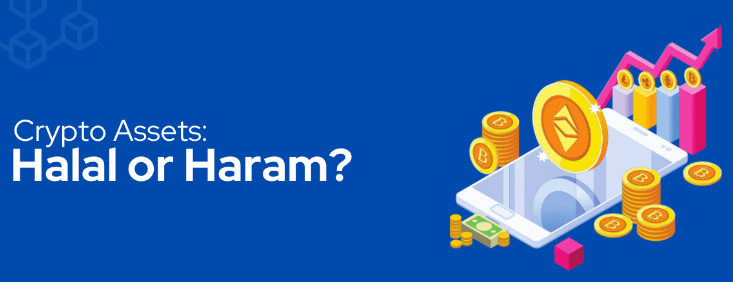Introduction 🔗
🔗
Cryptocurrency has rapidly gained popularity in the global financial arena, generating significant profits as well as posing regulatory challenges. However, within the realm of Islamic finance, it has triggered a theological dilemma. The central question being raised is whether cryptocurrency aligns with the principles of Sharia law and is considered permissible (halal) or forbidden (haram).
Title: Key Challenges Arise in Navigating the Sharia Sea 🔗

Decoding whether cryptocurrency is permissible in accordance with the core principles of Sharia requires navigating complex terrain, rather than providing a straightforward yes or no response. Within the ongoing debate, three main concerns emerge.
Charging exorbitant interest is completely forbidden in Sharia law. Although cryptocurrencies do not involve traditional interest, their value fluctuations determined by the market have raised concerns. Certain scholars contend that the absence of fixed rates could potentially make it permissible (halal) in this context.
- Maysir, encompassing activities similar to gambling, is often compared to cryptocurrency trading due to its reliance on speculation and price fluctuations. The absence of underlying assets and centralized regulation amplifies these concerns.
Gharar, which refers to excessive uncertainty or ambiguity, is a crucial factor in adhering to Sharia principles. The realm of cryptocurrency, characterized by its relatively short existence and unpredictable market fluctuations, unquestionably encompasses a substantial level of gharar. This attribute gives rise to apprehensions regarding fairness and transparency, both of which are fundamental principles in Islamic finance.
Scholarly Perspectives Across the Islamic World: Examining Varying Opinions 🔗
Scholars from different regions in the Muslim world have arrived at varying conclusions regarding the concerns raised. Some groups, such as the Indonesian Ulema Council, consider cryptocurrencies to be completely prohibited (haram) due to their association with gharar and maysir. On the other hand, organizations like the Islamic Finance Guru view cryptocurrencies as potentially permissible (halal) if individual projects adhere to Sharia principles and avoid engaging in activities linked to gharar, maysir, or riba.
Speculation vs. Transactions: An Emergence of Nuance 🔗
Several experts emphasize the differentiation between utilizing cryptocurrency as a valid medium of exchange and engaging in it solely for investment purposes, which entails seeking profit. They contend that the former may be acceptable when the underlying technology enables ethical transactions. Nevertheless, the latter raises additional concerns due to its speculative nature in trading.
Charting the Course: Exploring Individual Accountability and Ongoing Conversation 🔗
It is important to bear in mind that the understandings of Shariah can differ from one region to another as well as among different schools of thought. This variation contributes to the absence of a universally agreed-upon verdict regarding the halal status of cryptocurrencies. Ultimately, the responsibility of determining whether they are permissible or not rests with individual Muslims. Conducting thorough research and seeking guidance from trustworthy scholars are crucial in order to make informed decisions that align with personal beliefs and interpretations of Shariah.
Moreover, it is essential for experts to approach the ever-changing cryptocurrency landscape with caution. As regulations become more settled and new uses arise, the suitability of certain projects and practices may need to be reexamined. Maintaining ongoing discussions among scholars, industry professionals, and the Muslim community is of utmost importance in order to navigate this dynamic field ethically and with a clear understanding.
Final Thoughts: An Ambiguous Stream, Lucid Reflection 🔗

The question of whether cryptocurrency is halal or haram is not easily answered. It is a complex field filled with theological intricacies and practical considerations. For Muslims venturing into this unknown territory, it is crucial to employ critical thinking, seek informed scholarship, and take individual responsibility to ensure their financial choices align with their faith and principles. It’s important to remember that while the cryptocurrency landscape may appear murky, making halal financial decisions can become clear through careful contemplation and guidance.